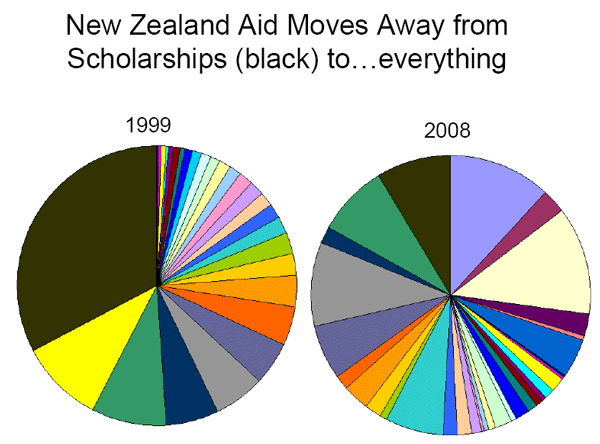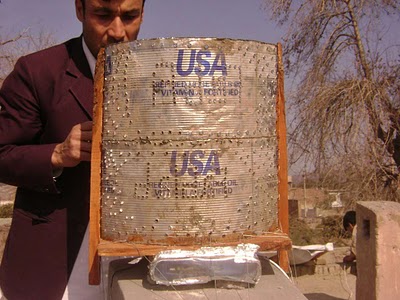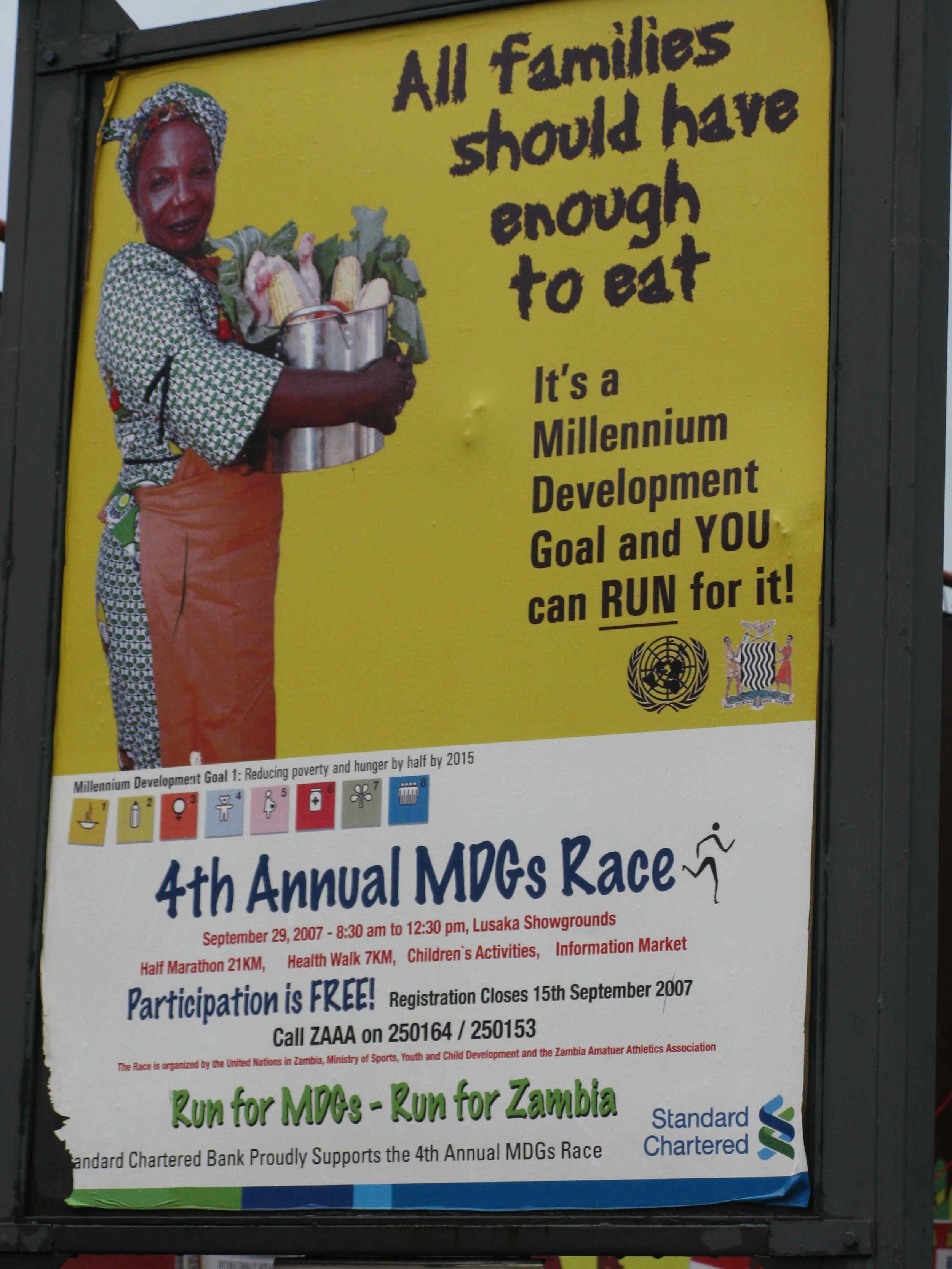The Aid Watch request for reader submissions for Best and Worst of Aid was our experimental attempt to use informal social networks to collect and spread stories about good and bad aid projects. In retrospect, it was only a partial success: we got a lot of submissions that couldn’t be totally verified, and many that did not explain why their submission deserved to be the best or the worst, problems for us to think about for the next time we try to run a contest, even an informal one like this.
Our request for submissions, which we posted here on the blog and emailed to aid practitioner, academic, journalist and blogging contacts, netted double the nominations for Best of Aid than for Worst of Aid. We’re not sure whether to take this as a good sign (people are excited about some of the projects that they’re seeing make a positive difference in aid) or a bad sign (people still don’t want to talk about what’s not working, even when given the cover of anonymity; or alternatively, it’s harder to find well-documented examples of what’s not working).
Thank you to everyone who took the time to send us their ideas. Here are the entries we’ve chosen for honorable mention, according to admittedly non-rigorous and non-scientific criteria, from our readers’ submissions of the best and worst of aid.
(Honorable Mention) BEST new aid finance mechanism: Advance Market Commitment (AMC) for pneumococcal vaccines, nominated by Andrew Steer, Director General for Policy and Research, DFID
What: In June 2009, a group of bilateral and multilateral donors launched an open offer to subsidize, at $1.5 billion, the purchase of more effective pneumococcal vaccines to fight meningitis and pneumonia in the developing world.
Impact: According to the WHO, pneumonia is the single cause of death in children worldwide, killing 1.8 million kids every year. GAVI has estimated that the pneumococcal AMC will save 900,000 lives by 2015 and over 7 million lives by 2030. More generally, wrote Andrew, “the AMC could represent a radically new and better way to fund technology development and production.”
Who is responsible: The AMC idea gained momentum in 2005 with the publication of a report, Making Markets for Vaccines: Ideas to Action by a working group organized by the Center for Global Development, lead authors Owen Barder, Michael Kremer, Ruth Levine, though many others have contributed to the development of this idea over time. Countries, organizations and agencies that have put up funding also deserve credit: Italy, the UK, Canada, Russia, Norway, the Bill & Melinda Gates Foundation, and GAVI Alliance partners World Bank, UNICEF and the WHO.
(Honorable Mention) BEST aid agency success story: Aid untying in Canada, nominated by Parker Mitchell, co-CEO of Engineers Without Borders, Canada
What: In spring of 2008, Canada announced that it was untying all of its food aid, meaning that Canadian contributions to multilaterals like the World Food Program would no longer have to be in the form of food purchased in Canada. A few months later, Canada announced a plan to fully untie development aid by 2012-2013. These decisions represent recognition of a growing consensus among donors, and growing pressure from NGOs and watch dog groups, that tied aid undermines fair competition and the ability of developing countries to produce competitive goods and services.
Impact: In 2008, half of Canada’s food aid and more than one-third of its non-food aid were tied to the purchase of goods and services in Canada. The OECD has calculated that aid can be made 15 to 30 percent more effective by untying it. As more donors untie their aid, pressure will increase on the outliers (including the US) to change their behavior.
Who is responsible: CIDA, for carrying out these reforms, as well as the Canadian organization Engineers without Borders and other NGOs that lobbied for the change for over 4 years, and are still watching CIDA closely to make sure that they are on track to fulfill their pledge and are being transparent in how they share information about aid untying.
(Honorable Mention) BEST uses of new technology to transform people’s lives: Mobile-plus, nominated by Diane Coyle, economist and author
What: “The technologies and applications that are increasing the capability of poor people to affect and gain control over their lives - summed up as mobile-plus.”
Impact: There is still much work to be done in understanding the impact that mobile technologies will have on the social and economic lives of people who use them. M-PESA, a mobile phone-based money transfer service which originated in Kenya, is now three years old and has more then 7 million customers transferring some $1.96 million per day; detailed research studies on its effects are beginning to emerge. More generally, Diane cited reductions in transaction costs, information gains created by access to communication, and the creation of an infrastructure that can be used to deliver other needed services like finance, as clear benefits of these technologies.
Who is responsible: Innovators like the founders and funders of M-PESA in Kenya; its younger sibling M-PAISA in Afghanistan; Kiwanja.net’s Frontline SMS, and Ushahidi, a platform which has been used to monitor post-election violence in Kenya and to coordinate disaster relief in Haiti, among other applications.
(Honorable Mention) WORST half-baked idea for which we have almost no information: “Camcorders for the Congo,” nominated by Laura Seay, Professor at Morehouse College
What: On Hilary Clinton’s tour through seven African countries last August, she announced a $17 million plan to fight sexual violence in Congo during her stop in Goma. According to the NYT’s coverage of the speech, the plan included “supply[ing] rape victims with video cameras to document violence.”
Impact: Unclear, and that’s the point. Unfortunately the USAID does not give further details of the program on their website. We’d need a lot more information to understand exactly who is supposed to benefit from these video cameras, and in what way, especially given that much of the sexual violence occurs in remote areas in which people do not have reliable or affordable access to electricity. For a more-fleshed out description of the potential absurdity of this project, see Laura’s blog, TexasInAfrica, and the Wronging Rights blog.
Who’s responsible: USAID…we think.
(Honorable Mention) WORST unsustainable health practice with Cold War-era origins: Project HOPE’s use of pharmaceutical company-donated, brand-name medicines, nominated by an anonymous reader
What: Project HOPE was founded in 1958, with funds and donated drugs from pharmaceutical companies and the gift of US Navy floating hospital ship the SS HOPE. The ship’s goodwill missions abroad combined public diplomacy with aid. A study drawing on archival documents cites Project HOPE as an example of the pharmaceutical industry's Cold War era strategy to defend itself against a congressional investigation into US drug pricing practices. Today, the bulk of Project HOPE’s programming and budget goes towards shipping and distributing brand-name drugs and medical supplies donated by pharmaceutical companies to developing countries.
Impact: Project HOPE does not publish evaluations on their website, and even looking at their external ratings, tax forms, and annual reports, it is difficult to gauge the impact of their overall work, which also includes health education. Our nominator voiced concerns about the unsustainable use of branded drug donations in developing countries with weak health infrastructure, where the demand for drugs and supplies needed locally likely does not match the supply available from rich-country pharmaceutical companies, and raised questions about the benefits to pharmaceutical companies who are seeking to increase their market share in the developing world and who might gain from the perception that certain brand-name drugs are preferable to generics. While there are cases where branded drug donations may be helpful, Project HOPE’s publicly-available materials don’t provide enough information to know whether theirs are.
Who’s responsible: Project HOPE, pharmaceutical company donors
Stay tuned later this week for Best and Worst winners.
 From Aid to Equality
From Aid to Equality















